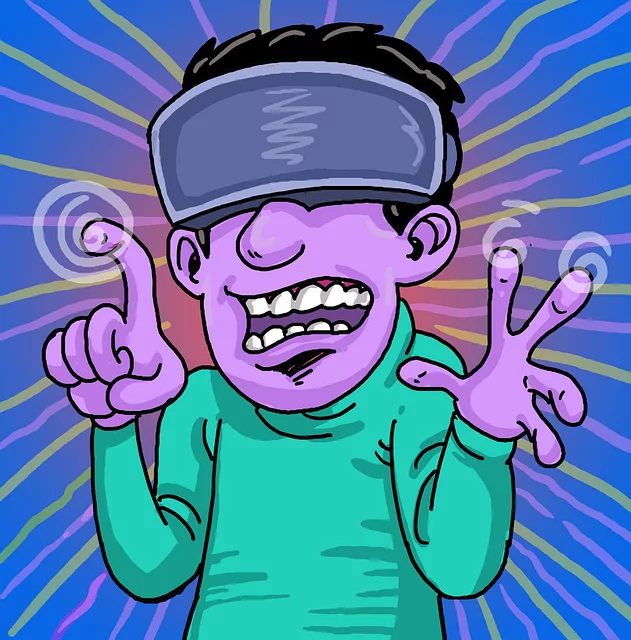Web-based therapy, or online counseling, leverages technology to deliver mental health services remotely, making psychological support more accessible and convenient. Virtual therapy sessions, facilitated by secure video conferencing, chat apps, and specialized software, cater to diverse populations including those preferring anonymity, with physical limitations, busy schedules, or limited local therapist availability. This digital approach gains popularity in the post-pandemic era, offering flexibility, discreetness, and geographical flexibility, transforming mental healthcare for good. Despite privacy and security challenges, reputable services invest in advanced security measures to ensure safe virtual therapy sessions, fostering trust and effective treatment from home.
“Discover the evolving landscape of mental health care with web-based therapy options, a modern approach gaining momentum. In today’s digital age, understanding virtual therapy sessions offers a new perspective on well-being. This article explores the rise of online mental health services, their benefits, and how virtual platforms revolutionize traditional therapy. From privacy concerns to common practice types, we navigate the future prospects and challenges of web-based therapy, shedding light on accessible care through virtual therapy sessions.”
Understanding Web-Based Therapy: A Modern Approach

Web-based therapy, or online counseling, is a modern approach that leverages technology to deliver therapeutic services remotely. This innovative method allows individuals to access mental health support from the comfort of their homes through virtual therapy sessions. It involves utilizing secure video conferencing platforms, chat applications, or specialized software designed for psychological treatment. With just a stable internet connection, clients can connect with licensed therapists and receive personalized care without geographical constraints.
This digital shift has democratized access to mental health services, making them more accessible and convenient. Virtual therapy sessions cater to diverse populations, offering solutions for those who prefer the anonymity of online interactions or face barriers such as physical limitations, busy schedules, or limited availability of local therapists. As technology continues to advance, web-based therapy is poised to play a significant role in shaping the future of mental health care.
The Rise of Virtual Therapy Sessions

The digital revolution has brought about a significant shift in healthcare, and mental health services are no exception. Virtual therapy sessions, or online counseling, have emerged as a game-changer in accessing psychological support. This modern approach allows individuals to receive therapy from the comfort of their homes, breaking down geographical barriers that traditionally limited mental health care.
With the rise of remote work and increasing internet accessibility, virtual therapy has gained immense popularity. It offers flexibility, convenience, and discreetness, making it an attractive option for many. Through secure video conferencing platforms, clients can connect with licensed therapists, engage in talk therapy, and even participate in group sessions, all while maintaining privacy and avoiding the commute to a physical clinic. This accessibility is particularly beneficial for individuals in rural areas or those facing mobility challenges.
Benefits of Online Mental Health Services

The rise of digital technology has brought about a significant shift in the mental health landscape, making access to care more convenient and widely available through virtual therapy sessions. Online mental health services offer numerous advantages, such as increased accessibility for individuals who may face geographical or physical barriers to traditional therapy. This is especially beneficial for those living in remote areas, with limited transportation options, or those with busy schedules who find it challenging to fit in-person appointments around their daily routines.
Moreover, virtual therapy sessions provide a level of comfort and discretion that can encourage individuals to seek support more openly. Online platforms often offer secure and confidential spaces, allowing clients to explore their mental health issues in privacy. This accessibility and convenience have proven particularly valuable during the global health crisis, where many people have turned to digital solutions for various services, including mental health care.
How Virtual Platforms Facilitate Therapy

Virtual platforms have revolutionized the way therapy is delivered, making it more accessible and convenient for both clients and therapists. Online therapy sessions, or virtual therapy, offer a range of benefits that traditional in-person meetings may not. One of the key advantages is geographical flexibility; patients can access therapy from the comfort of their homes, eliminating travel time and barriers associated with physical locations. This accessibility is particularly valuable for individuals in remote areas, those with limited mobility, or those who prefer the privacy and convenience of online consultations.
Additionally, virtual therapy sessions provide a safe and secure environment for sensitive discussions. Advanced encryption technologies ensure that personal information remains confidential, fostering trust between the therapist and client. The digital nature of these sessions also allows for easy record-keeping, enabling therapists to track progress over time. This comprehensive approach ensures continuity in care, as clients can review session notes and share them with other healthcare providers if needed.
Ensuring Privacy and Security in Web Therapy

In the realm of web-based therapy, ensuring privacy and security during virtual therapy sessions is paramount. As more individuals opt for remote mental health services due to their convenience and accessibility, the need for robust data protection becomes increasingly critical. Therapists and healthcare providers must employ secure platforms that encrypt sensitive information exchanged during online therapy. This includes patient records, personal details, and any confidential communications. Reputable virtual therapy services invest in advanced security measures to safeguard client-therapist interactions from unauthorized access or potential cyber threats.
Maintaining privacy involves not only technical safeguards but also strict adherence to legal guidelines and ethical practices. Therapists conducting online sessions must obtain informed consent from patients regarding data collection, storage, and usage. Transparent communication about the security protocols in place builds trust between therapist and client. By prioritizing these aspects, virtual therapy sessions can offer a safe and effective environment for individuals seeking mental health support from the comfort of their homes.
Common Types of Online Therapy Practices

In today’s digital era, web-based therapy options, or virtual therapy sessions, have emerged as a game-changer in mental health care. These online practices offer individuals the convenience and accessibility of receiving therapeutic support from the comfort of their homes. Common types include individual therapy, group therapy, and even specialized programs for specific issues like anxiety or depression. Many platforms utilize secure video conferencing tools to facilitate real-time interactions between clients and therapists, ensuring privacy and confidentiality.
Some providers also incorporate text-based messaging and online forums, fostering a sense of community among clients. This versatility in delivery methods caters to diverse preferences and needs, making virtual therapy sessions an attractive alternative for those who may face barriers such as time constraints, geographical limitations, or even discomfort with traditional in-person settings.
Future Prospects and Challenges in Web-Based Therapy

The future of web-based therapy looks promising, with virtual therapy sessions becoming increasingly accessible and accepted. As technology advances, therapists can leverage sophisticated platforms and tools to deliver effective treatment remotely, reaching a broader range of clients who may face barriers such as geographical constraints or limited mobility. This shift also promises improved accessibility for individuals in rural or underserved areas, promoting mental health equity.
However, challenges remain. Ensuring patient privacy and data security is paramount in virtual therapy sessions. As more sensitive information is shared online, therapists must adhere to stringent data protection regulations. Additionally, the lack of face-to-face interaction can hinder building rapport and trust between therapist and client, which may impact treatment outcomes. Overcoming these challenges will require ongoing innovation, robust cybersecurity measures, and continued research into effective therapeutic techniques tailored for virtual settings.



